There are some films that stick with us long after the first time we viewed them. These films are burnt into our memory, perhaps even shaped our lives, and almost always ones we go back to time and time again. For many who grew up in the 1980s, The Monster Squad is one of those films. Released originally in the summer of 1987, The Monster Squad may have attained little traction at the box office, but would be something that caught on with viewers at local video stores in the years to follow. On its ways to achieving a bold legacy, The Monster Squad found an audience through word of mouth, and thirty plus years later, is one of the most beloved films to emerge from the ’80s era.
Garnering a groundswell of support each time it has been released to a new format, including when it arrived to 4K in 2023, The Monster Squad’s high demand even prompted the creation of the 2018 documentary playfully entitled Wolfman’s Got Nards. Written and directed by leading Monster Squad star, André Gower, in truth, the fanfare driven journey the film has taken him on is something beyond his wildest dreams. Remembered for his portrayal of Sean Crenshaw, Gower had an interesting career in film/television leading up to the role; starring in everything from episodes of Knight Rider to The A-Team. Humbled and gracious for all of these early life opportunities, the talented actor/filmmaker recently sat down to reflect on The Monster Squad, his career in entertainment, plus a whole lot more.
Cryptic Rock – You began acting in television and film at a young age. Keeping busy, you were a part of some really cool projects early on leading up to 1987’s The Monster Squad. Before going any further, how would you describe those early days when you were actively working and taking roles in television?
André Gower – Every kind of different period in your adult life, as you get past those times, you look back on it maybe a little differently. It’s all kind of the same. It was a very interesting time, obviously, for me. It was a very unique time because not very many people in the country, or on the planet, get to do that. Even back then, there was even a smaller number of kids that were in the industry that did a lot of work. It was just something that I started when I was five years old when I actually did my first “work.”
My sister, Carlena, is a couple of years older than I am. She had been in the business for a while and worked quite a bit on a lot of television, a lot of commercials, and a lot of print work. She was actually the little girl in The Towering Inferno (1974) that Paul Newman saves from the tower. That was something that kind of shaped your childhood. You’re just kind of next. I was five years old, started off in commercials, print work, television and features at a very young age. I just jumped right in and took to it like a duck to water, I guess.
Cryptic Rock – Wow. Yeah. As stated, you did do some really fun things. You appeared on a lot of really cool shows; whether it be Knight Rider, The Twilight Zone or The A-Team.
André Gower – No doubt. A lot of people look at the list of credits, or now it’s all on IMDb of course. Everybody says, “You had the coolest television career, and you got to do all these cool shows and guest star on all these great series.” They’re not wrong.
A lot of times you look back on it, in my television career as a kid, I had great fortune to be on these amazing shows. The reason you’re able to be on these shows is because you were available and had the time; which means I did a lot of television shows. Instead of doing one TV series that went for seven or eight seasons, I did five, six, or seven television shows that went one or two seasons. That means you’re not stuck with one thing over time.
I used to think of that as a negative. Everybody’s brass ring in this industry is to get on a show that you’re on forever and then it goes on syndication, that’s what you’re known for and you retire off that. Those are great situations to have. After a while, I started realizing that the diversity of the opportunities that I got, because of that available time and doing these amazing shows that only went one season or two seasons, they’re all learning experiences. There were all great opportunities to work with and meet really awesome people.
Some of those people are contacts that you keep for the rest of your life. The more you get to do, the more cool people you get to meet and the more cool people you get to have in your life going forward. Some you get to work with again. That happened a handful of times. I used to look at it as a negative, but it really is a positive that you get to do so many things; because you get to talk about it decades later as people really get a kick out of how much cool stuff you got to do.
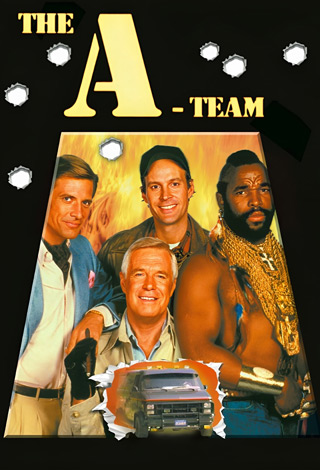
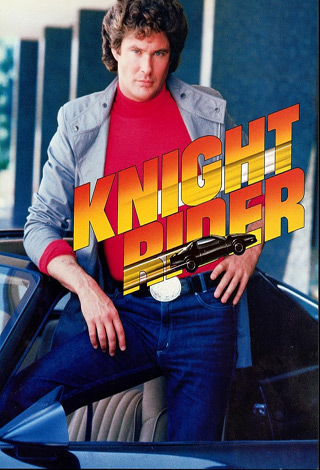
Cryptic Rock – Absolutely. It is all great experiences. Obviously, it all led to The Monster Squad. The Monster Squad, as you outlined in your documentary, and as we all know, it really did not lift off the way it should have. It became this cult classic and it is still revered all these years later. Before we dive into that, how did The Monster Squad come about for you in the first place?
André Gower – It’s just a regular casting situation in Hollywood for this movie that comes across the desk and you have to go audition. Now, the interesting thing that makes my connection to Monster Squad very compelling is that everybody knows me as Sean Crenshaw, the leader of The Monster Squad, and the lead in the film.
I never auditioned for the role of Sean Crenshaw. I originally auditioned, screen tested, and met the producers and the directors and writers all as the character Rudy. When you think back and you look back, the reason why I originally auditioned for the role of Rudy is my body of work, in the few years leading up to Monster Squad, I was always the cool kid. Always the kid with a lot of hair products, a lot of great hair. Maybe there was a leather jacket or two involved and I was always sort of the cool kid with the attitude or the style.
Then this movie comes across where there’s a group of kids and one of them happens to be this James Dean, greaser, ’50s rocker type school kid that is a little bit older than the rest of the squad. That’s the role I auditioned for. That’s the role I screen tested for and met all the way through the whole casting process.
Then Ryan Lambert comes in for his casting sessions as Rudy and absolutely murders the role and becomes Rudy in the room. I didn’t know this at the time. I know that story years later, of course, and I love that story because I know what Ryan did when he went into that room and became Rudy in that moment.
What’s interesting where I end up is somebody in the group that’s making decisions for The Monster Squad; be it Fred Decker, be it Penny Perry (the casting director), be it Producers Jonathan Zimbert and Peter Hyams, or somebody in that group thinks back when they have to decide on the lead character and say, “We’ve read every kid in town for this role. What about that kid we read for the other role? Could we cut his hair off and take all the product out of it and put him in some ill-fitting clothes? Could he be Sean Crenshaw?” The group said, “Yes.” They called me in and said, “You’re Sean Crenshaw.”
I remember getting that call from my agent and said, “Hey, remember that movie you read for a month back or so?” At this time, you realize there’s a lot of auditions for commercials, TV shows, and movies. You’re doing multiple auditions a day and tons every week. You think back, you’re like, “Oh, yeah, that movie, read the script, the cool monster story.” “Yeah, that one. Well, you got cast in it.” You’re like, “All right. That’s awesome.” “But not for the role that you read.” Normally, in this business, that’s a bad thing because they usually like you, but someone came in that did better, and they gave you a lesser role or a smaller role. I didn’t know what that would be. You get a little bit out of shape because Rudy was the cool character. He kills more monsters. He gets the girl. He’s the cool kid. He gets the smoke and shoots all the weapons. They said, “No. They cast you as the lead.” Then you’re like, “No, but Rudy’s a cool character.”
We love telling that story because it has changed since that day, but it just gets more and more fun to remember because that was a big deal. We know that everybody ended up in the exact right spot. Could I have played Rudy? Sure. It would have been probably a little more laid back, campy, kind of an over-the-top school kid. Maybe.
Ryan Lambert was Rudy though. I fit right in with being the know-it-all that bosses everybody around, take that leadership role, and let’s go make a movie. Everybody ended up exactly where they were supposed to. That was kind of a cool thing to look back on over the years.
Cryptic Rock – That is pretty wild. Everything certainly does seem to have landed in place. You could not imagine otherwise as a viewer as well. As mentioned, unfortunately The Monster Squad did not get the accolades it deserved when it came out; whether it be poor marketing, or releasing it in August… which makes no sense. Nonetheless, the film built its own following, and earned that at the video store. Do you often hear how people discovered The Monster Squad at their local video store?
André Gower – No doubt. At that time, movies that came out, yes, I think you’re right. We kind of interrogated that a little into Wolfman’s Got Nards of why did this not work? Was it the release date? Was it the rating? Was it just sort of the marketing campaign; which there were two different ones and they were contradictory? Was it all the poor reviews that it got from local media and the newspapers? I think it was a combination of all of that.
What was unfair to Fred Dekker and Shane Black’s script, and to Fred’s movie, was in 1987, when a movie came out in the theaters, somebody (and at that time I’m sure it’s some dude in a suit), either at a movie theater chain, at a studio, or at a distribution house, arbitrarily set a number that your box office has to reach in the first 48 hours.
I think if we look back, I almost think this is an investigative series, it’s not just a documentary of how many cool films disappeared, got shelved or got burned because they didn’t reach some arbitrary number where some marketing guy didn’t understand the audience. I think The Monster Squad falls into that category because that is a word-of-mouth film with the kids on the playground, and in the schoolyard, and in the cul-de-sac, and in their neighborhoods, and as they ride bikes in the woods.
Can you imagine when it opens on a Friday night or Saturday and you go to the mall and see it with your friend or maybe your dad and you go, “Holy crap, I got a kick out of this movie. I can’t wait to tell my friends at school on Monday.” Then you go to school and go, “Hey, friends, I saw this awesome movie. I’m going to go see it again this weekend. You got to come with me.” Everybody gets in the car, gets on their bikes, and drives to the two-screener in their neighborhood. It’s not there because it didn’t reach the box office numbers that somebody set for their 48-hour or 72-hour window, and they pulled a movie. We got a lot of that story.
A lot of kids know they saw this cool movie. A lot of kids know for a fact that it was in the theaters last weekend. Then they have to wait almost a year for it to come out at the local video store. Then they go in and they reference this movie. Then they see it on the shelf. Then they see it on the posters. A lot of the video store employees took it as their employee picks, suggestions, and managers picks. They just went every weekend and killed that video store. A lot of them never returned it; they kept it or they stole it, or the manager just finally gave a kid that VHS box because he rented it every weekend and said, “Just take it.” Those are great stories.
Another leg of the chair there where The Monster Squad found an audience was on HBO. HBO ran it. They thought it wasn’t going to get a lot of views. It got a ton of viewership though, so they ran it more. They didn’t realize that these kids were watching it in the afternoon when they were coming home alone from school and were allowed to watch it. They watched it with their friends late at night on HBO too. The theater run basically didn’t count.
That video store attention grab, that connection, and then that access to HBO is what kept that fire burning and kept that title with these kids. Because 20 years later, when we had the cast reunion screening at the Alamo Drafthouse, and then for the years as the resurgence was kind of building, we got that story. We met people that either knew everything about The Monster Squad or had never heard of it. It was either 50/50. It was one or the other.
You ran into these stories and kids like, “Hey, I stole this video from the video store, and I shared it around the neighborhood”, or “I copied it off of HBO, and we traded it in the schoolyard, and we borrowed it from each other for years because there was no other medium to get it.” It was a dead title. It was out of print. It wasn’t a release that you could really buy with a VHS copy. You just had to get the one from the video store. In 2007, when Lionsgate put out a DVD, that went bonkers.
Cryptic Rock – That was definitely exciting when it finally came to DVD; because, as you said, for a long time, it sat dormant. It was one of those films that did not make the jump to DVD for a while. There are still actually a lot of films like that that still have never made the jump… which is kind of sad. Like you said, there are these cool movies out there, but for whatever reason, did not meet the standards or numbers of what critics were saying at the time.
André Gower – Yeah. Whereas filmmaking and making a movie is creative and art, releasing a movie is just business. That’s all they see in it. I can’t imagine, because of the word of mouth and the stories we’ve heard about The Monster Squad over the last 15 to 20 years about the kids that knew it, got connected with it, and told their friends about it, if it was released now. What if a movie like The Monster Squad was released when the internet or social media was around? You can instantly tell all your friends, “You’ve got to go see it. You’ve got to check it out.” That’s what I think is great about technology, the internet, and social media nowadays is you have this instant commentary. Sometimes that instant commentary is negative, bad, and malicious, which is not good. Other times, it can help. It’s very important.
The people that steward technology positively and in good light help things like that now. It would be amazing to have Twitter (or whatever you call it nowadays) back in 1987; because the social media was the kids when they got together in their treehouse. That was social media and that’s how they shared information.
Cryptic Rock – Yes, and like you said, technology is what you make of it. Fred Dekker had also released Night of the Creeps the year before in ’86. Night of the Creeps is another one of those films that is just awesome. It is one of those films that has a similar fun vibe as The Monster Squad. There are also actually a few recycled themes from Night of the Creeps in The Monster Squad.
André Gower – Of course there are. Not only that, but there are recycled Monster Squad themes in Night of the Creeps. There are recycled themes from all of the creature features, studio monster movies, and B movies that Fred and Shane grew up watching and reading. Night of the Creeps is great. It stars an old friend of mine, Jason Lively. I think it’s a great, fun movie. Tom Atkins is, of course, Tom Atkins. You don’t get any better than Tom Atkins in a role like that.
Night of the Creeps was almost just as influential with a lot of kids, filmmakers, and writers as The Monster Squad was. The Monster Squad had the help of having the classic Universal Monsters that people were enamored with for decades and kind of disappeared for a decade or two and then came back with something like The Monster Squad. But Night of the Creeps is great too!
For Night of the Creeps fans out there, a lot of them know that there’s a Monster Squad Easter egg in the bathroom scene; because while Fred was shooting Night of the Creeps, he had gotten the news that The Monster Squad was greenlit and they were going to start shooting that next year. So, on the tile in the bathroom, in the background, he had the art director write ‘Go Monster Squad’ on the back wall there. A little bit of bathroom graffiti is a little bit of teaser Easter egg for The Monster Squad.
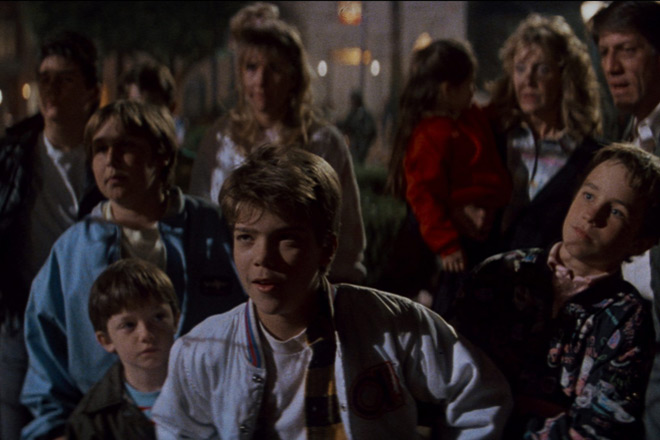
Cryptic Rock – Yes, and that is great! From a fan standpoint, those two films go together, obviously, because they are both done by Fred Dekker, buy they seem to fit the same bill. These two films were really spectacular, fun films that just never got the mainstream love they deserve.
André Gower – No doubt. You’re not alone thinking that. I think there’s thousands, if not tens of thousands, of movie fans that feel the same way. A lot of people feel like I do that when you set those box office numbers, or you set success with box office numbers and not what people are saying about it, that’s where studios and distributors can really hose a filmmaker or hose creators.
Fred came out of the gate at a very young age and had two major motion pictures made by studios that people loved. Then he gets to make a third movie by the time he’s 27 or whatever it is. He’s made three major studio movies, and then you’re automatically in director jail. I think that’s a little unfair. Not only is it unfair to Fred, but I think it’s unfair to us as movie lovers that we don’t get to see what he has next, because the movie business says, “Sorry, do not pass go. Go straight to director’s jail.” I think that’s bullshit.
Cryptic Rock – Oh, absolutely. Speaking of directing and producing, you had the opportunity to do so with The Monster Squad documentary, which came out in 2018, Wolfman’s Got Nards. Really a fun, well done documentary, what was it like putting that together?
André Gower – That was at the time when an idea of doing something documentary like talking about The Monster Squad fandom and the resurgence, sneaking up on the 30th anniversary year, and it was a completely different concept of mine. I thought it was just going to be like me going out with a couple of friends that have some used camera gear and microphones.
Ryan Lambert, Ashley Bank, and I are going on the road. We were able to go to some of these conventions and screenings, just talk to some of the fans that we’ve known for years, got some fan on the street type of interviews at conventions, and thought we would be doing a 30-minute short film just explaining the resurgence and how much we appreciate the fandom that has now kept this movie alive for now 30 years and kind of turned the attention on the fans… because that’s what keeps films alive.
I had this interesting serendipitous happen on a random weekday afternoon and I ended up running into and meeting Henry McComas, Wes Caldwell, and Aaron Kunkel from Pilgrim Studios because I was going to lunch with one of my oldest friends, Jen, who works at Pilgrim Studios at the time. All these guys were Monster Squad fans.
They had just started a division of that studio that was looking to develop concepts and work on documentary type projects. We were one of the first ones that got greenlit out of that studio. That was an amazing thing, because my little crappy 30-minute thing that I thought we were just going to put on our podcast website for the fans to enjoy and be fun, gritty, dirty and terrible turned into a really introspective, historical, fun story to tell that doesn’t play like a documentary.
We put a lot of work into it. Behind Henry’s storytelling and technical guidance, we ended up with a narrative story about a relationship between fans and a movie. That doesn’t just stop with Monster Squad. We were very, very cognizant about approaching this as we were shooting a documentary, about not making it just about Monster Squad, but making it about the connection that fans can have with anything. It could be a song. It could be a movie. It could be a movie poster. It could be a TV show, or your favorite book. What it is to connect with something at a certain age, no matter what that age is, and have that stay with you long-term. Maybe it affects your life. Maybe it affects your career. Maybe it affects how you view the universe.
We ran in over the years to so many of these fan stories. I realized before even shooting, which kind of gave me the idea of doing a documentary, is that these stories that these fans had that connected with The Monster Squad. We heard these stories over and over again over the years. I realized that those stories were a story. I started listening to them even closer, and I realized that I was right. I got lucky running into those guys.
I got lucky by doing a deal with Pilgrim Studios to put me in the room with the very small but dedicated and hardworking crew that we made this documentary with. They’re all filmmakers, and they’re all film lovers, and they’re all Monster Squad fans. We worked really hard for almost a year on this documentary, and it didn’t seem like a day of work. I put those guys through the ringer on a lot of stuff because I put a lot of stuff in front of them.
They just stretched, got ready, woke up and knocked it out of the park every single day. We released it to the world in ’18 on the festival circuit, and the response that we got was amazing.
Cryptic Rock – Well, you did a sensational job with it. Everyone did a great job with it. It does The Monster Squad and everyone involved in the film justice. Keeping The Monster Squad alive, last year Kino Lorber released the film in 4K. Exciting, that set also included your documentary.
André Gower – It did. That’s what I think was something that was very cool; because Kino Lorber contacted me and asked if they could include it in this awesome 4K set that they were doing. I thought it was the perfect opportunity to get new eyeballs on it, because unfortunately with our current distributor, they weren’t really interested in doing a physical release. I always thought that we missed out on that because Monster Squad fans are collectors and they love to hold their stuff in their hand. They love to put it on the shelf next to their VHS box, their bootleg DVD, the Lionsgate DVD, and the two Blu-rays that came out.
Now we have this amazing Kino Lorber 4K release which looks and sounds amazing. Everybody loves it. I think they did a great job of putting that out. I’m glad that people got to connect with Wolfman’s Got Nards again in a physical mode and they can pop it in their player anytime they want to.
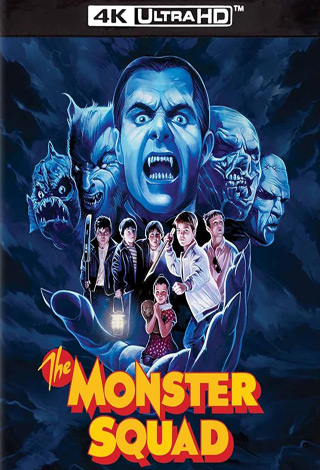
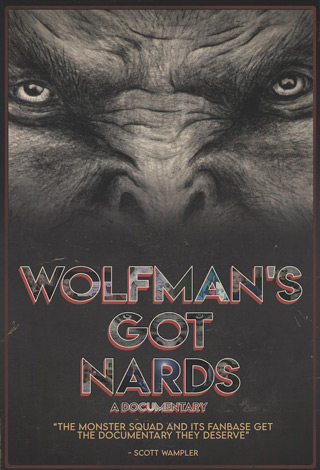
Cryptic Rock – It certainly is well-worth picking up. There has been a resurgence of older Horror films in the form of collectible figures over the last 6-7 years. NECA released a figure of Tom Atkins’ character from Night of the Creeps! It would be great to see some Monster Squad memorabilia out there. What is the deal with that? Is it all litigation or rights holding up some Monster Squad collectables? People would love that.
André Gower – I don’t disagree one bit. I think one of the issues has always been access to the rights and licenses. Over the years, since The Monster Squad didn’t do well in the box office, it got put in a pile of rights that actually changed hands something like a half a dozen times in the 20 years since it was released.
Lionsgate in 2006-07, after our 35-millimeter print at the Alamo Drafthouse kind of sparked this interest in the movie again, I think someone at Lionsgate looked into it and said, “Oh, shit, we have the rights for this to put it out for distribution. Let’s see what that does.” It blew up! They didn’t have the film rights at the time for a sequel or a remake or anything. No one knew who did.
A lot of people were hunting for that piece of paper for years. I don’t know if merchandise rights are also a separate piece of paper. This was just something that was sort of in flux… and kind of still is. It’s very interesting what happens with rights, title rights, distribution rights, and merch rights. They’re not all one thing. Those are all split things that have different pieces of paper. I think somewhere floating around in someone’s dusty box in a warehouse… someone actually has it. There are things in media law in this country that after a certain amount of time, they revert back. I think people are working on those things as we speak. I don’t know, because I’m not involved in it day-to-day. It would be really nice for somebody to kind of secure that.
If it’s the right people, then yeah, it’d be great to have merch, monster figures, action figures and really neat collectibles. There are some great companies out there that are chomping at the bit to do it for the last 20 years. They just can’t.
Cryptic Rock – That is unfortunate, but we will have to see what happens. What is really cool is you also touched on that in your documentary. Wolf Man’s Got Nards is a really well-rounded film; because these are things that strike the heart of the fans. Beyond The Monster Squad, you have some other projects you have coming up. What else are you working on?
André Gower – Yeah. Always have something in the front burner, and sometimes it goes to the back burner because something else takes the lead. Ironically, at the same time the documentary got greenlit, I had sold three projects.
One was a TV show concept that I actually sold to Lionsgate that spent about six or seven months in legal getting the contracts worked out, and then it went away. Then we went into production on the documentary. At the same time, I had developed a show that I sold to Nerdist and Legendary Studios called Short Ends. It was a show that showcased short films.
Unless you go to a film festival, you don’t really get to see a lot of shorts at that time. This is back 2015, ’16, ’17. I loved that show because I brought my buddy Ryan Lambert in, we co-hosted it, we curated the episodes, we themed the curation of it, and had a great production staff on that. We did 22 episodes and we showcased 82 or 83 short films and interviewed about two dozen filmmakers. It was just super fun.
The documentary, we had festival season, and we ran into a lag after our very successful festival run with Wolfman’s Got Nards, and we didn’t get any bites on distribution. What we didn’t know is that a lot of people thought we already had a studio deal at the festival, so no one approached us. So, we lost a bit of time. We ended up with a deal that actually fell through because of the dropping of a ball at some point. We lost this great deal with a great company. We had to start the process all over. Six months later, we ended up releasing Wolfman’s Got Nards in the fall of 2020.
This keeps all of your attention, and is in the way of other projects. However, all during that time, I was pitching that television series again and other projects popped up. I love working with amazing creators and trying to help their projects get to the next level. Honestly, after Wolfman’s Got Nards, I’ve been working on multiple projects with Henry McComas; who actually just released his first writer-director narrative debut on Tubi as a Tubi original called The Camp Host.
If anybody wants to check that out, that’s a great, fun, new look at a classic Slasher movie with modern commentary in it. Henry and I have a handful of projects that we love to develop and take out to the world. I have other projects with other people too. I have my own concepts and projects that I’ve been working on for the last year or two. I did take about a year off kind of going full steam on things; because I ended up with some personal things to deal with.
I had a massive heart attack in the summer of 2021. That took me off the board and took the steam out of me for a little bit. I’ve refilled that though I’ve been stoking the fire over the last year and this year and trying to get back out there and really race down the tracks a little bit more. I won’t say projects galore, but there’s a handful of things that I really like.
I’m working with Henry on a few things as well. I’m also working on something that I can’t get into, but as soon as it launches, I’d love to reconnect on it. It’s a brand, it’s another show, and more of a talk show, podcast type show that I’m working on. As we speak, I’m getting to the next level of making that happen.
It’s always fun to be in that creative and development process. It’s always fun to be in that business development process, because then you know you’re getting close to doing it. We’re right in that next phase on a couple of projects.
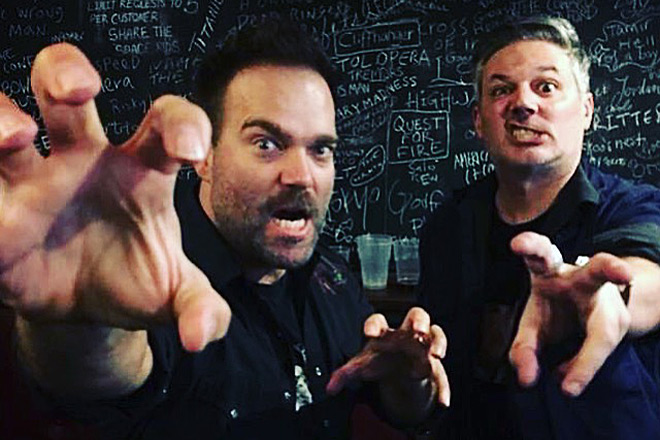
Cryptic Rock – Excellent and best of luck with all the projects. Backing up a little to what you said, it is good to hear that you are healthy now. That has to be scary and the most important thing is your health.
André Gower – It was. It was just something that came up and tried to take me out. I beat it back with a stick and got back in the saddle, so to speak. One of the things that I still enjoy is actually being in front of the camera. A lot of people don’t assume that. I’m friends with a ton of filmmakers who are established and up and coming. I meet awesome people that are aspiring filmmakers around the country and around the world. Very few people assume that you still want to work in front of the camera. I was like, “That’s what we do. We’re actors. We enjoy that. That’s the easy part. We get a kick out of it.”
One thing that I started getting into a little bit more before the pandemic was talking with a bunch of locals or young filmmakers. You get asked to be in a lot of people’s projects, and a lot of them you shouldn’t do. A lot of them you can’t do, because it’s not set up for timing-wise or ability-wise.
Myself and Ryan Lambert started looking at a couple and deciding, “Hey, you know what? This could be fun. Let’s jump in this. Let’s help this filmmaker out because it gives us some enjoyment.” I always like helping people. If I can, I would like to make someone’s day by showing up for two or three days on their small-budget movie that they would never assume they could get someone like us to do. All you have to do is ask… and sometimes it happens.
Even my established filmmaker friends never assumed that I would ever do their non-big-budget movie. I’m like, “Hey, man, this is what it’s about. Let’s get the gear and let’s make something happen.” It’s been fun being back in front of the camera a little bit more in the last couple of years and helping those people and being part of those projects. If you can give a little bit of a push or a little bit of a help or make someone’s day, like I said, to have someone like myself or Ryan join their crew, that’s something cool too. That has a big value with us.
Cryptic Rock – Well, it is great to see that you still have such a passion for it. That is really inspiring. It shows how much you love it.
André Gower – It is. It’s fun because like I mentioned before, we talked about starting at a young age. Not a lot of people get to do this, and not a lot of people get this opportunity. You gotta appreciate it, one, and you gotta respect it, two.
If you can balance those two with what you want to do and what you think you should do, then it’s just fun for everybody. I think that everybody puts a lot of pressure on things instead of enjoying it a little bit more. I’ve always tried to enjoy things before I worry about them.
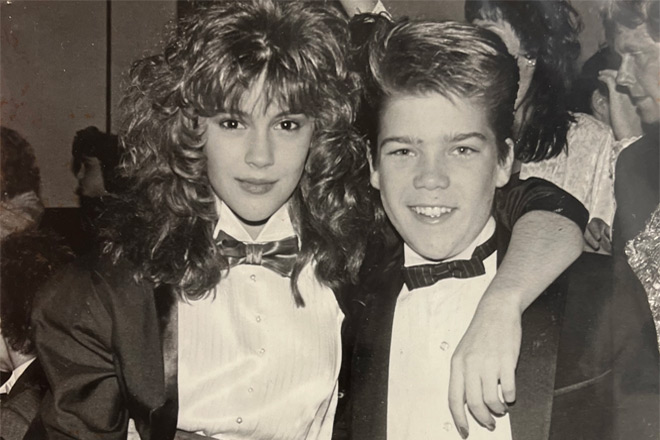
Cryptic Rock – That is a good way to look at. As someone who has had The Monster Squad a part of most of your life, did you develop a liking for the Horror genre, or was that something that developed over time?
André Gower – I feel like I was a well-rounded kid and was exposed to a lot of different things. I always liked a lot of different music, different TV shows, and a ton of different movies, whether they were Horror or Comedies, Romantic Comedies, or Sci-Fi.
Truth be told, who doesn’t love Horror? That’s where the monsters are. That’s where the scares are. As a kid, I loved old movies. I got to see a lot of the old monster movies, creature features. I got to see a lot of the historical famous movies that a lot of 10, 12, 13-year-old kids wouldn’t watch. I enjoyed those, because I would stay up late at night on my shitty little television in my bedroom and watch black and white movies that kids weren’t really watching.
You get a feel for a wide range of stuff. Being my dad’s son, I was a Cold War kid. My dad and I loved watching Cold War and World War II movies. We loved watching anything military-based or spy movies. My dad was a big Bond fan. If Gene Hackman was in it, we were there too!
Chuck Norris movies as well. Yeah, give me all that literal cannon fodder. From Casablanca (1942) to Invasion U.S.A. (1985), I was there. I really was a Sci-Fi kid. I loved technology. I love space and time travel movies. I love anything from The Day the Earth Stood Still (1951) to The Terminator (1984). That probably took first place, probably with Horror and stuff as a second place. When you’re on the set of something like The Monster Squad and you know you’re going into this movie with the classic monsters, you got to love that. Who’s not going to dig that?
Cryptic Rock – It is fantastic to hear how well-rounded you are in film. It seems like film is something that has informed your entire life. You love all films, and that is really fascinating.
André Gower – That’s true. Sometimes that’s a blessing, and sometimes it’s a curse. I think anybody that can just step out of one box and be well-rounded, no matter your age, you step out of what you normally do, and find something that is different. You realize that it’s all connected and they influence each other anyway. There’s a great line in one of my favorite movies, Mr. Holland’s Opus (1995). Everybody makes fun of me for loving the movie, but I do because it’s about a teacher; and some of my favorite people in my life are my teachers.
Anyway, in that movie, there is a guy who thinks he’s destined for greatness and fame, and he just gets stuck in the town teaching music at a high school. However, he doesn’t realize the impact he had on so many lives though. There’s a great line in the early ’60s when he plays a little tune, and then he goes, “Do you know who this is?” Everybody goes, “Yeah, that’s The Kingsmen or something.” He goes, “No, this is Minuet in G by Bach.” The moral of the story is all music is based on the same three chords. The same goes with film… which is based on the same seven plots. It’s just whether you’re doing it in space, in a cave, in the 1700s, or if you’re doing it in the future. It’s just how filmmakers and storytellers give it to you that makes the difference. It’s either a hero’s journey, a revenge tale, a coming-of-age story, or a romance. It’s all the same stuff. We just get it with different flavors, and you’re supposed to love it.
You shouldn’t be too critical of it, because most people that are too critical of something end up believing they have some sort of ownership in it. They couldn’t be further from the truth. People make this stuff for entertainment and for enjoyment. If you connect with it, it means something, then that’s the reward. On the flip side of it, if you’re a fan or a movie watcher, being too critical about something, you’re doing it wrong.

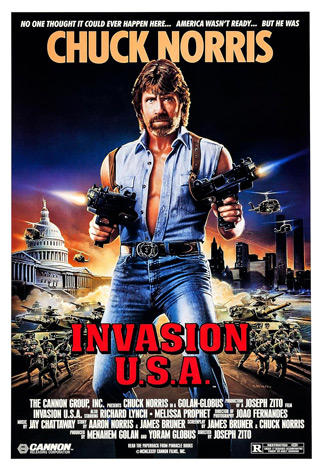
Cryptic Rock – Absolutely. Everything is subjective. What may be trash to one, is gold to another. It all depends on the person.
André Gower – Absolutely. That’s right. I realize, of course as we get older, because I’m slowly sliding into my curmudgeony guy phase, and you don’t like things. You’ve really got to step back and go, “You can’t look at it that way. It doesn’t matter if you don’t like it. Somebody does, and that’s what’s important. This isn’t made for you. It’s okay.”
For example, “Oh, you don’t like the new song on the top 40 radio.” It’s like, “Well, you know what? You’re not 14.” You’re not the one downloading it on Spotify. I don’t even have Spotify. I’m not putting it on my playlist and it’s okay, because someone else does. Then you realize some of these musicians, singers, songwriters, and rappers, they’re all inspired by the stuff that you actually did or like. You’re like, “Oh, okay. This is kind of cool. It’s all connected.”
Cryptic Rock – That is a good way to look at it.
André Gower – It’s tough. Being a curmudgeon is really easy.
Cryptic Rock – (Laughs) Yes, it is easy to get caught in your ways and what you think. Honestly, you could still not like something but just, “Well, it’s just not for me.”
André Gower – That’s right and that’s okay. Now, unfortunately, because of the great thing that we have with technology it turns into not a great thing because now everybody has a megaphone. They want to tell everybody about the stuff they don’t like. Let me tell you a little secret… no one gives a shit if you don’t like it or not.
Cryptic Rock – Right. It is funny when you talk about technology and how it does some good things, but there is also a flip side of that coin. You have people using it, and they build this narcissistic personality where they think that they are the end-all be-all when it comes to opinions, but that is not reality.
André Gower – It’s not. It’s interesting and kudos to them that they’ve got that entrepreneurial kind of vibe and they’ve built something out of it and make it. I think your efforts could go somewhere else though, but I can’t hate the fact that you succeeded in what you set out to do. I missed the boat and only do a little social media. I don’t do it very well, much to the chagrin of a couple of people.
I realize it’s a powerful tool. Information, shows, and content really should be used for at least something good or at least information dissemination and not for tearing a lot of stuff down. We’ve got enough negativity in the world that we don’t need to add to it.
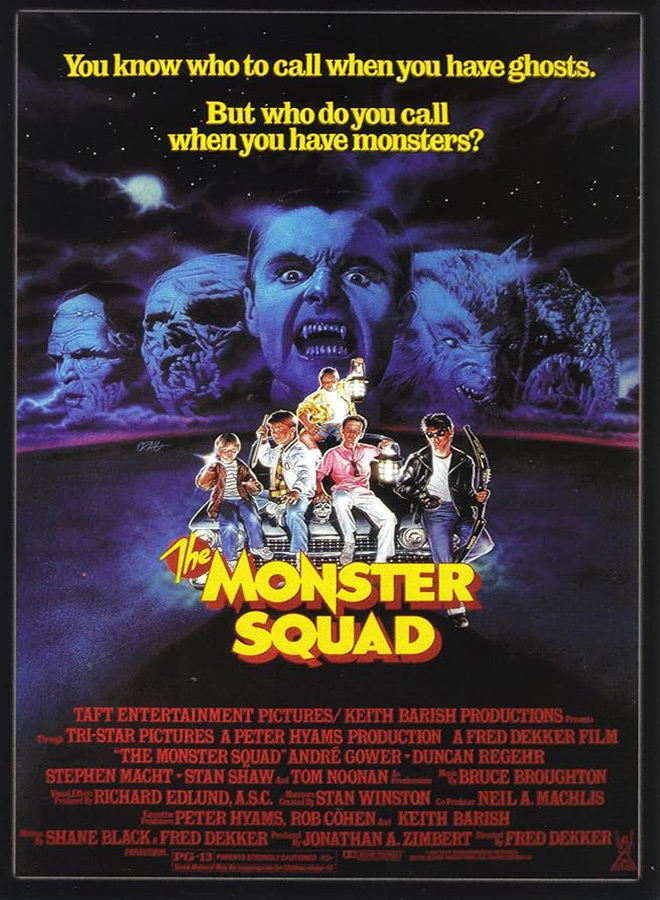
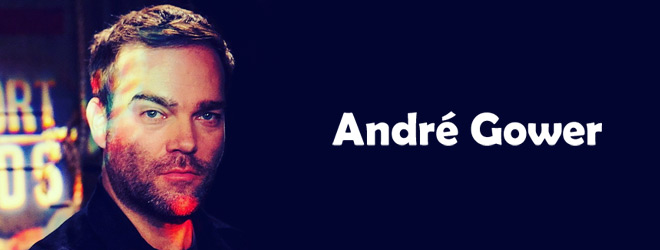
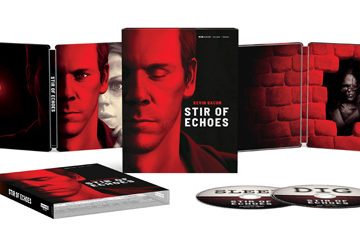



Very great interview with Andre Gower. I forgot how many projects he was involved with back in the day, and it’s wonderful that he is still active and doing things he is interested in. I wish him continued success in all he chooses to do. I saw Monster Squad when it first came out, and though I was a little older (about the age of the actress playing the older sister and her friends) I loved it. I helped promote it at the video store I worked at and was happy that it became such a success rental-wise. I remember being disappointed that it got shuttered so quickly theatrically and feeling like they didn’t give it enough legs to meet its potential. I spent a little time in Hollywood but didn’t have a way to remain long enough to have a real chance for a career. Had thngs turned out differently this is exactly the kind of project I would have loved to be a part of. I’m glad that he is proud of it and that he thought enough of it to create the documentary I’m not sure why I wasn’t aware of it before today but will be seeking that out asap.
We appreciate you taking the time to read the interview. We are glad you enjoyed and learned something from it.